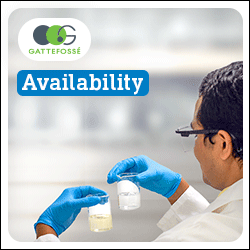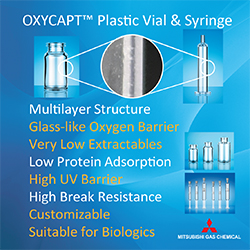Abzena Partners With FDA on MAPPs Assay Publication
Abzena has recently co-authored a publication with the US FDA demonstrating the potential of the MHC Associated Peptide Proteomics (MAPPs) assay as an important method to interrogate immunogenicity risk and help design superior antibody and biologics with a higher chance of a successful outcome in patients.
The authors highlighted the value of MAPPs in the development of biologics and the precision it offers in identifying potential immunogenicity risk, a factor that can lead to suboptimal drugs or termination of clinical programs if anti-drug antibodies (ADAs) are induced in patients. Adoption of MAPPs within the biotech industry as a tool in immunogenicity testing could help reduce this risk and streamline biologics development.
Abzena has over 20 years of experience in developing phase-appropriate assays for the assessment of potency, efficacy, and safety. Demonstrated to be an effective tool in de-risking biologics in early preclinical stages and offering significant benefits over traditional immunogenicity assays, Abzena has integrated the MAPPs assay into its extensive immunogenicity service offering.
Dr. Campbell Bunce, Chief Scientific Officer at Abzena, said “We are proud to collaborate with the FDA on this journal article highlighting the advantages of utilizing MAPPs as a tool in immunogenicity assessment. This is a highly precise, and despite its complexity, robust assay, that provides information about processing and presentation by immune cells that can inform regions of drugs that may promote the induction of ADAs. Both pharma and biotech customers stand to benefit from methods such as MAPPs in conjunction with in silico assessments and T cell proliferation assays to de-risk their drug development programs. By utilizing MAPPs, we can support our customers in delivering safer, more effective therapies to patients faster.”
To access the publication, visit: https://bit.ly/41qOfag.
Citation
Jankowski W, Kidchob C, Bunce C, Cloake E, Resende R and Sauna ZE (2023) The MHC Associated Peptide Proteomics assay is a useful tool for the non-clinical assessment of immunogenicity. Front. Immunol. 14:1271120. doi: 0.3389/fimmu.2023.1271120
About the Journal Publication
This study utilizes MHC Associated Peptide Proteomics (MAPPS) to comprehensively evaluate the immunogenic potential of re-engineered variants of immunogenic FVIIa analog (Vatreptacog Alfa). The findings revealed the correlation between the protein sequence affinity for MHCII and the number of peptides identified in a MAPPS assay and this further correlates with the reduced T-cell responses. Moreover, MAPPS enables the identification of “relevant” T cell epitopes and may contribute to the development of biologics with lower immunogenic potential.
Abzena is the leading end-to-end bioconjugate and complex biologics CDMO + CRO. From discovery through
commercial launch, we support customers with fully integrated programs or individual services designed to
de-risk and streamline the development of new treatments for patients in need. With the ability to tailor its
strategy and customer experience to each project, Abzena develops and implements innovative solutions
that enable biotech and biopharma companies to realize the full potential of their molecule and move
medicines forward faster. The company has research, development, and cGMP facilities across locations in
San Diego, CA, Bristol, PA, and Cambridge, UK. Abzena is owned by Welsh, Carson, Anderson & Stowe, one of
the world’s leading private equity investors. For more information, visit abzena.com.
Total Page Views: 617













